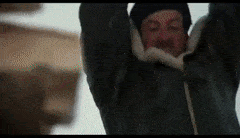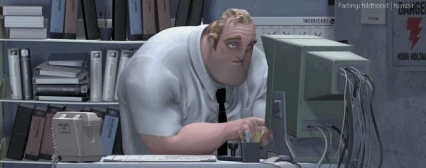I started skiing last year.
It’s a guarantee that every beginner skier will fall and get super tired after a few hours on the slopes*. That’s because a beginner skier’s movements are very inefficient. A lot of physical energy is wasted on staying rigid and upright, twisting and throwing their bodies into turns. Mental energy is burned too—being afraid of falling, recalling the technical details of how to ski and navigating past other skiers without crashing into them.
I got better at skiing and after a couple of trips, it was time to ride the lift higher up the mountain. The lift passed a steep black diamond run and on it I spotted a skier carving gracefully down the mountain, fully in control and hardly moving his body at all. It looked like he and the mountain were involved in an intimate call and response as he danced down the slopes. It was beautiful to watch.
He embodied efficiency. The perfect effort at the right time, responding completely to the situation at hand.
The efficient/inefficient principle holds true for freelancing as well, except in our culture, efficiency is replaced with relentless effort. This means working as hard as you can on as many projects as you can. It’s an especially potent mantra if you work for yourself: it’s easy to justify working longer hours and spending the rest of your time improving your skills so you can take on even more projects. If you can fit more into your day than the next person, isn’t that being efficient?
Listen.
There’s a time and place for relentless effort. When you’re on a flat part of the mountain, you’ve got to use your poles to gain momentum. But in skiing it’s obvious the terrain changes all the time—pretty soon that flat terrain dips and drops and if you keep pushing with your poles, you’ll gain too much momentum and go flying down the mountain.
The terrain in your freelance work is also changing all the time, albeit in less obvious ways. What required a ton of effort in the beginning might now just need an occasional push. It’s up to you to notice the change in terrain, and move with it.
An example of this is spending too much time learning new tools and “upskilling”. It might have been necessary when you first started, but continuing to devote so much time to learning might be counterproductive: you might be spreading yourself too thin across multiple tools. That’s when you become inefficient—when you dedicate too much effort to things that your situation doesn’t demand.
When you’re skiing down the mountain, the terrain dictates what is demanded of you. A mogully run requires you to absorb the impact of each bump with your skis. A steep run requires short, controlled turns to maintain an even speed. There is no one type of effort; the right effort at the right time is efficiency; the right effort at the wrong time, or the wrong effort at the right time—results in inefficiency. The latter is obvious when you’re skiing—you get tired quickly and you fall a lot.
Likewise, your freelance business also demands specific responses from you. If you’re a fulltime freelancer and don’t make enough money to support yourself with freelancing, it’s time to stop learning tools and start reaching out to new prospects. If you’re spending too much time in meetings with clients, it’s time to pare back and let go of your client’s hand.
You already know the specific ways you are being an inefficient freelancer. It’s the stuff you’re doing that are comfortable but not very relevant to your business. You do them anyway because the things you do need to be doing are often boring, uncomfortable and unsexy.
We usually imagine “working hard” as a movie montage of the brilliant artist bringing forth amazing picture after picture, burning the midnight oil and being oh-so-productive.

The truth is, most times what’s really required isn’t like that at all. It’s finding new clients to cold email. It’s emailing existing clients to remind them you still exist. It’s the boring stuff that’s also kinda hurtful to your artistic pride.

People love skiing because the mountain is very demanding and the feedback is clear and instantaneous. It demands that you respond to the terrain in front of you, and not to some idea you have in your head. It demands efficiency: the perfect amount of effort at the right time.
The same holds true for freelancing. It is demanding: you need to find clients, land projects, manage expectations and get paid for it all.
In skiing, when the responses of the skier perfectly meet the calls of the mountain, you have a graceful, effortless dance.
As freelancers, rather than blindly dumping our effort forth to realize some aspiration or platitude we’ve collected from our zeitgeist, we can more gracefully move forward by responding to the terrain right under our feet, one demand at a time.
*Babies excluded. Babies are the best skiers.
